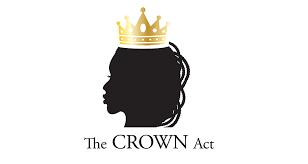“Everything that is popular started as small, subcultural, or niche.”
by By Jason Lalljee
The makeover scene from The Princess Diaries scarred a generation of curly-haired kids who watched as Mia Thermopolis’ mane broke a brush. Anyone regularly shopping in the natural hair aisle knows, however, that Mia just needed a good leave-in conditioner and some clarifying shampoo. Ditto for Hermione Granger.
The Mias and Hermiones of the world—white people with curls that seem unmanageable—are turning to Black hair care products like Mielle Organics’ Rosemary Mint Hair Oil, which went viral and flew off of shelves last year. Black hair care products are typically made for people with curly and textured hair, whereas mainstream brands often use ingredients that aren’t conducive to caring for those hair types. In the past, “curl-friendly” and “not curl-friendly” were separated into de facto “Black” and “white” categories, but the wave of hair education on TikTok has blurred the boundary between the two.
The Black Hair Care Industry Is at a Crossroads
The few companies that do target Black hair types are often in short supply. Now, Black-owned hair care brands face the paradox of developing new formulations and marketing geared toward those with looser curl textures or maintaining smaller product lines targeted to their most loyal consumers.
“Time and time again we’ve seen Black brands appear to shift away from this consumer base in order to capture a wider market share,” Ibi Meier-Oruitemeka, founder of the Afro Hair & Skin Co., said. “I understand why businesses often feel the need to diversify or expand their market. But if everyone caters to everyone, then quality and efficacy are undoubtedly affected.”
Black hair and the Black hair care industry have always been inextricable from racism. In particular, Black people with coarser curl textures tend to be the most underserved by brands and are most impacted by texturism. Black people face discrimination at work for wearing their natural hair, and drugstore chains have locked up hair care products aimed at Black women and other women of color. That’s on top of years of structural pressure normalizing perms, Jheri curls, and relaxers, and the ensuing natural hair movement, which encouraged Black people to embrace their natural hair texture.

But since the days of Madam C.J. Walker, the entrepreneur who became America’s first self-made female millionaire by selling hair care products for Black women, the Black hair care industry has proved to be profitable. Black consumers have grown it into a massive market, estimated to be worth about $4.5 billion by 2034. And Black-owned companies’ market share in the general hair care space hit $2.5 billion in 2021, according to marketing intelligence agency Mintel.
The Black Hair Care Industry Is at a Crossroads
“Companies say to themselves that the market is too small for us to waste our time on Black people and people of color,” Marcus Collins, a marketing professor at the University of Michigan, told Slate. “But they’re not considering the network of those consumers. Everything that is popular started as small, subcultural, or niche.”
White consumers embracing hair care products geared toward Black people is a relatively new phenomenon. It’s been two decades since the Curly Girl Method entered the lexicon, and TikTok is now replete with white users testing out products from Black-owned brands like Camille Rose and Flora & Curl, showing off how well they work on their own curls.
Case in point: After Alix Earle, a white influencer with nearly 7 million TikTok followers, endorsed the Mielle hair oil in a December 2022 video, the product immediately went viral and sold out in drugstores around the country, to the frustration of many Black consumers who couldn’t access a product they’d relied on for years. Months later, Procter & Gamble bought the brand, following in the footsteps of companies like Unilever and L’Oreal, which acquired Black-owned brands after they grew popular (SheaMoisture and Carol’s Daughter, respectively). Many former loyalists of these brands decry the post-acquisition formulas. Those customers then go elsewhere.
“When a [company like] P&G buys a brand, it’s normally with the intention to grow it, increase distribution, and potentially leverage brand heat” to create new products, Marie Driscoll, a retail analyst, said.
White consumers’ interest in these brands will likely grow, meaning these types of acquisitions will only become more common. And it means that brands will likely change their marketing strategies, Meier-Oruitemeka said.
The Black Hair Care Industry Is at a Crossroads
“You can see evidence for this when looking at keyword trends,” she said. “The current hair trends are dictated by how people search, and there has definitely been a huge change in our understanding and application of the term ‘curly,’ which was once a catch-all term for almost all hair that wasn’t straight.”

Black-owned brands have also been reaching out to a more diverse array of users through TikTok, sponsoring non-Black creators and commissioning them for user-generated content, aka UGC. Melanin Haircare founder Erin Williams said the brand made sure to choose “influencers that represented each demographic that we naturally see within our organically shared content.” That means including white creators, too.
While the marketing strategies might be reconfigured, the products themselves don’t necessarily need to change once the company changes hands. Collins points to Bevel, a grooming brand designed for men of color, as a line of products that actually improved after its P&G acquisition.
“Bevel still pays mind to the people that they’re serving, so Bevel still feels like they’re talking to me,” he said, citing Bevel’s expansion to razors designed for coarse and curly hair, as well as a partnership with Nas, as examples.
As long as the products work—no matter who or what company holds the keys to the brand—people will continue to buy them. For any company trying to corner a niche market, that should be a unifying principle.
The Black Hair Care Industry Is at a Crossroads
Accommodating white and non-Black consumers doesn’t have to mean that Black-owned hair care brands estrange their original audience, said Stephanie Scott-Bradshaw, CEO of the PR agency First and Last. Hair care brands should target every demographic of consumer that their products work for.
Take Beyoncé’s recently debuted hair care line, Cécred. Its packaging is fairly generic: simple black-and-white bottles and text with no images. The brand’s Instagram showcases models of different racial backgrounds and hair textures. But Cécred makes a concerted effort to highlight its Black-owned origins in its media coverage.

The packaging on Skimdo products is similarly minimalist, and the brand name itself doesn’t reference its Black-owned roots. Kimberley Cowans, a mixed-race Black woman, founded the company 10 years ago, and early versions of the products were geared toward people with looser curl textures like her own. The brand’s Instagram feed features models from a range of racial backgrounds and with a variety of curl types.
“I center people of color while demonstrating that all textures can and are welcome to use the products,” Cowans said of her marketing strategy. She added that for better or worse, companies that start small and specific will eventually want to embrace as many types of customers as possible.
When a large company buys a small brand, the investors can “dictate the budgets and the return you need to make, and that unfortunately [can] mean cheaper formulations,” she said.
That can often mean white consumers become the priority: Growing interest among them, in addition to pricey raw materials, means companies will likely pursue weaker formulations made with looser hair textures in mind. That’s at the expense of people with tighter curls, Cowans said; specifically, Black people with 4C hair.
“It’s the same logic the cosmetics industry had with darker-skinned people,” she said, which is that making products for them “costs more money.”
“But let me tell you, it’s worth it to include them,” she said. “If you look at the spending power of Black people in the beauty industry? It’s enormous. We should be serving them because it’s financially gratifying and also important for humanity.
